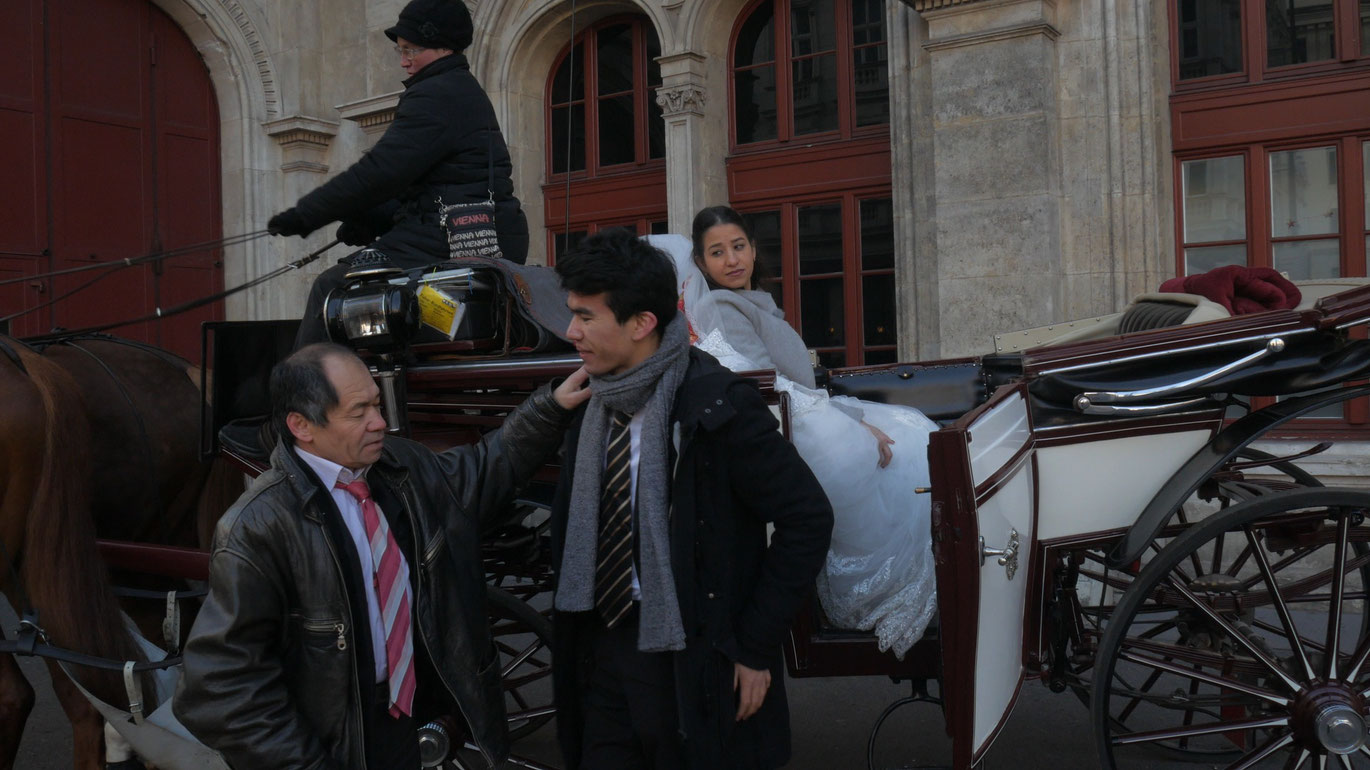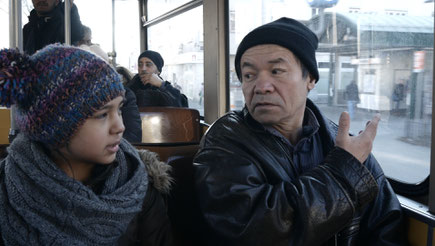The Most Beautiful Country in the World by Želimir Žilnik
Sun Dec. 9, 2018, 20:30 h
Filmmuseum & Metro KinoKulturhaus
December 2016, a demonstration in front of the parliament in Vienna. Two men on the fringes of the mass of people begin talking - about the destruction of Aleppo, the Taliban, the few supporters of war who establish their claim to truth violently against the lives of the many who are uninvolved. The brief exchange is shaped by interest and understanding.
What is filmed is immediately apparent as fiction; the two men are so neatly set into the picture, the dialogue so faultlessly audible, shot/reverse shot in a comfortable rhythm. This principle energizes the aesthetics of Želimir Žilnik´s The Most Beautiful Country in the World. Appearing here in front of the camera are people whose lives did not begin in Austria in this generation or the past one. They go step-by-step through both dramatic experiences as well as scenes from everyday life - whereby this includes both the everyday situation of having to integrate in a still unfamiliar land and routine that is already based in local living contexts. Here, documentary film is staged with the goal, wish, and reality of creating bonds. Several times over this process generates the hint of a catastrophe, promises doom. But the self-defined approach of the protagonists, a refreshing pragmatism, and the fine humor that pervade the film swing the sail onto course at the last moment for a happy end. (Fantastic moment: the bride who after the mock wedding staged for her grandfather, tells the groom´s girlfriend how convenient it was to wear the veil covering her face, because then the guests had no chance to notice that she was sleeping during the ceremony.)
Every scene describes an approach. Between the people among themselves, between individuals and institutions. In its final ramifications, The Most Beautiful Country in the World is a plea for a society in which lived diversity does not degenerate to a mere fashionable slogan. (Melanie Letschnig)
---
The main hero is a twentythree-year-old Bagher, who embarked on his journey from Afghanistan as a seventeen-year-old, leaving a war-thorn family. After three years of travel (through Iran, Turkey, Greece and the Balkans) he arrived in Austria in a great migrant wave in 2015. He prooved himself to be a brave, honest and intelligent young man. He has mastered German language, has several devoted and intelligent friends. They are on the road of “Europeanisation”, but suddenly Bagher`s grandfather Haydar appears, arriving in Austria illegally, through Slovenia. He came to find Bagher in order to convey the message, that he has a duty to preserve the name and honor of the family, because all the other men were killed in the war back in Afghanistan. The appearance of gradfather Haydar leads to discouragement, evocation of the past, conflicts and a series of new labyrinths, from which Bagher and his new friends must find the way out. (Želimir Žilnik)
"Trailer":https://vimeo.com/287997803
Premiere: 9.Dezember 2018 | 20.30h im
Österreichisches Filmmuseum
Augustinerstraße 1
1010 Wien
Kartenreservierung/tickets: +43 | 1 | 533 70 54
online: www.filmmuseum.at
in Anwesenheit von Želimir Žilnik und den DarstellerInnen / in presence of Želimir Žilnik and the actors
--
von 10. - 23. Dezember 2018 täglich im
Metro KinoKulturhaus
Tickets: reservierung@filmarchiv.at
tel: 01-512 18 03
http://filmarchiv.at
SONDERVERANSTALTUNG
Donnerstag, 13.Dezember | 19h im Metro Kinokulturhaus | Historischer Saal
Filmvorführung mit anschließender Podiumsdiskussion mit Želimir Žilnik, Alaedin Gamian und anderen zum Thema "Geflüchtete auf der Leinwand, Klischees und Überraschungen"
Solidaritätsscreening: Alle Einnahmen gehen an Asyl in Not und Asylkoordination
Downloads:


